Opinion
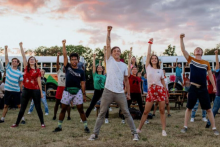
Despite all the outsized power and privilege white evangelical communities hold, there is a dearth of spaces where people can process what it means to have grown up in the belly of it. Fortunately, there’s a whole slew of new films and documentaries that focus on white evangelical youth culture, offering some of us the chance to reflect on our upbringings as we figure out what it means to have white evangelical roots in a post-Trump world.

My professors in journalism school taught me to avoid passive voice as often as possible. They taught me that passive voice gets in the way of giving readers a clear view of who did what. Passive voice may be innocuously overlooked in many instances (for example, in this sentence, I didn’t tell you who was doing the overlooking), but more often using it risks confusion and obscurity — and these aren’t exactly journalistic values.

Many people in this country — and many others around the world — paid attention. We could not ignore the horror of Derek Chauvin kneeling on George Floyd’s neck for 9 minutes 29 seconds as Floyd cried, “I can’t breathe.” Some of us watched as Floyd lay dying and unresponsive. That horrific moment is forever etched in our memory — and we reached a breaking point. We decried the violence and declared, “enough is enough.”

Creating sacred space, whether in temporary dwellings or permanent homes, is ultimately about constructing community. Community creates safety through mutual care for one another. Often, the political response to unhoused people is instead based on the contrived premise that they are a danger to neighborhoods.
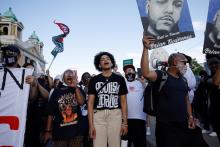
I recently spoke with a good friend who was in the gospel choir with me at Clemson University. He sang. I played drums. During our time there — in between meals and practice and concerts — we felt the suffocation. That suffocation was in between the Black gospel choir and white Fellowship of Christian Athletes meetings, between Black Clemson and white classes. It was not the type of suffocation that kills you; it was the kind that smiles in your face and puts arms around your shoulders and waves hands in praise and sways your body side to side while never getting rid of slaveholding names and memories and theologies. It was the type of suffocation that enjoys the feeling of your presence but fails to embrace the fullness of your humanity.
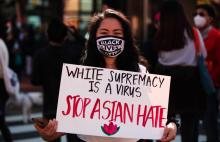
The question is: How do we broaden our bandwidth for advocating with our African American brothers and sisters while also bringing into view what is happening to Asian Americans in this moment? How does this moment continue the entire history of anti-Asian American racism? How can we expose the ways “racial capitalism” has sought to turn “non-white” races against each other?
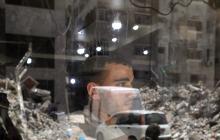
The images of civilian deaths and escalating violence in Israel and Palestine are heartbreaking. As this moral, political, and humanitarian catastrophe continues, we must urge our elected leaders to call for an immediate cessation of the current wave of violence, while also building the political will to interrogate the root causes of the crisis.
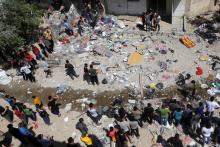
“Pray for the peace of Jerusalem!”
Palestine and Israel are back in the news. So again, we Palestinians hear this common refrain. But such calls are no longer enough. I say this as a pastor who believes in prayer, leads prayer services for peace, and genuinely values your good intentions.
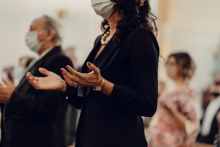
The new CDC guidance has also prompted many pastors and faith leaders to revisit their own masking and social distancing guidelines for worship. But as an immunocompromised person, I want churches to know that if you choose to allow your congregation to unmask now, before we have any sort of herd immunity, you are asking immunocompromised people to choose between risking their lives or being excluded from church.

Rather than reflecting the truth of the motivations of both workers and employers, the "labor shortage" conversation is a tactic to adjust public perception and create the political will big corporations need to capture cheap labor –– it's propaganda at its most straightforward.

As your pastor, I am proud of you. God is proud of you. I can say that without any doubt in my mind. Yes, you have passed your exams, but the pride I am talking about is the hard work and spiritual dedication you’ve put into your own soul and spiritual growth.
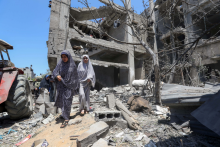
By May 14, reports indicated that at least 122 Palestinians, including 31 minors, had been killed and more than 900 wounded since May 10. In Israel, at least seven people were killed, including one child. While the immediate violence must be brought to an end, the realities of the ongoing Israeli occupation of Palestine cannot be ignored.
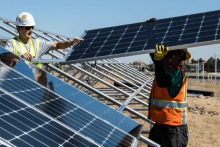
The American Jobs Plan invests in rebuilding our economy, creates millions of good-paying jobs, helps workers transition out of the fossil fuel industry, and protects our health, land, air, water, and global climate.

Biden's plans are not just about good politics or good policy — they’re about what government can do to relieve human suffering, about whom government should invest in. These are not just political matters but ethical ones. So let’s look at Biden’s three big plans from a moral, theological, and biblical perspective.
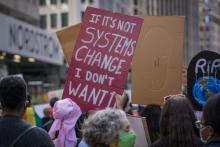
Punishment should not be synonymous with "accountability" or "justice." Rather, justice and accountability should be centered around acknowledging damage and seeking restoration.

Director Anthony Mandler's movie Monster, focuses in on a myriad of social issues — race, class, mass incarceration, crime, and the U.S. penal system — but it also is a monster movie of sorts.
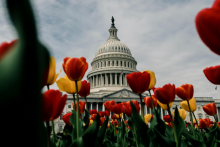
The voices of mothers, of women, and all who have mothered us have long been essential in movements for justice. That work continues, as we are closer than ever to winning the 100-year battle to add the Equal Rights Amendment to the U.S. Constitution. The amendment would protect women and LGBTQ people from discrimination on the basis of sex and gender-based violence. But until the Senate acts, the amendment will not move forward.
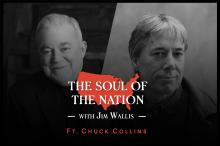
Chuck Collins and Rev. Jim Wallis talk about the extreme wealth inequality and how everyone has a role in fixing it.
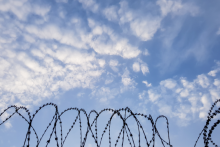
The U.S. prison system is an afront to human dignity and in sharp contrast with God's vision for justice on earth. Christians' commitment to love, hope, and justice should inspire us to work toward abolishing the prison system.
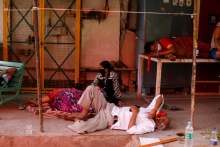
It is painful to know that here in the U.S., some states have vaccines that are going unused when vaccine shortages exist around the world.